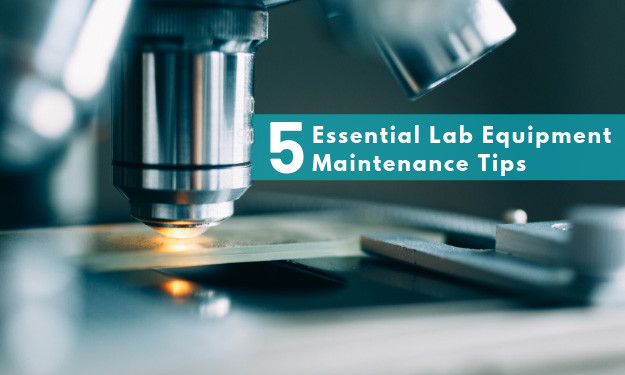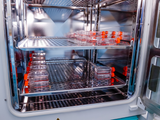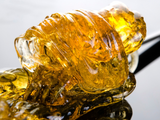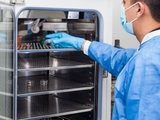Laboratory Equipment Maintenance Tips

Purchasing new lab equipment is often expensive. While there are times when equipment must be replaced, avoiding this economic burden as much as possible will help improve the financial situation of your lab. To avoid the need to repurchase equipment year after year, follow these lab equipment maintenance tips to extend your machine’s functional life.
Calibrate
Regularly calibrating your equipment will help you identify any signs of wear or underlying issues. Recognizing these signs early on can prevent problems from getting worse, reduce chances of data corruption, and improve the accuracy of your equipment. Regular calibration is especially important when it comes to medical equipment. According to the Mayo Clinic College of Medicine and Science, “ It is estimated 60 to 70 percent of all decisions regarding a patient's diagnosis, treatment, hospital admission, and discharge are based on the results of the tests medical laboratory scientists perform.” This is why it’s important to professionally calibrate your equipment periodically to ensure optimal accuracy.
Clean
A more-obvious way to extend your equipment’s functional life is to regularly clean its exterior. This practice, however, is frequently overlooked. Each day, you should wipe down your equipment and do deeper cleans on a weekly basis. Refer to your machine’s manual for detailed instructions on how to properly clean specific pieces of equipment.
Refurbish
Refurbishing involves disassembling equipment and thoroughly cleaning each of its individual parts. It may also involve polishing metal elements and lubricating pistons and pipettes. This process should be completed regularly to make your equipment run smoothly and last longer.
Repair
As soon as you notice any signs of damage or wear in your lab equipment, however minor, it’s important to repair the issue right away. These repairs could be as simple as replacing small parts such as worn nuts and bolts. Making these small repairs often will work wonders to extend the life of larger equipment.
Organize
To prevent potential damage, the area your equipment is stored in should be kept neat and organized. Cluttered spaces make it easy to knock over equipment and cause damaging spills or breakage. Further, a disorganized space may make it harder to notice excessive moisture, leaks, mold, or pest infestations that could cause irreparable damage to your equipment.
If you’re in a situation where you must purchase new equipment for your lab, USA Lab Equipment has multiple options to choose from. From lab chillers to distillation kits, our high-quality equipment is built to last.
Explore Popular Articles
How a Vac Oven Can Revolutionize Your Drying Process
In industries where precision drying is critical – such as pharmaceuticals, food processi...
Secrets to Mastering the Vacuum Purge: Process for Cleaner Extracts
Modern extraction systems pull out most solvents quickly, but those last traces demand careful...
Maintenance and Care 101: How to Prolong the Lifespan of Your Vacuum Oven
Vacuum ovens are indispensable in industries like pharmaceuticals, electronics, and cannabis process...




